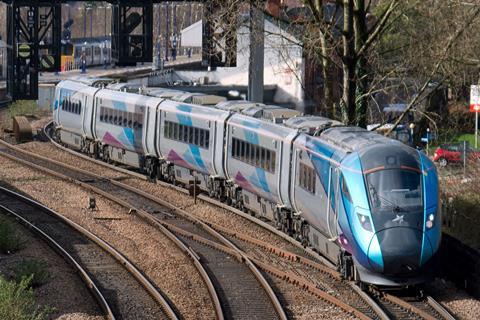
UK: The Railway Industry Association has published five manifestos setting out its ‘key asks’ ahead of the devolved and regional elections taking place next month.
The recommendations for each region are:
London
- establish long-term multi-year financial settlements for Transport for London in order to provide funding certainty for businesses and an investment pipeline;
- deliver rail major projects as part of a long-term infrastructure plan;
- make the case for rail travel in the long-term and encourage passengers back onto the railways as we recover from the coronavirus pandemic;
- speed up the decarbonisation of London and the southeast’s transport network, to drive modal shift;
- help boost skills and improve the diversity of the region’s transport network.
Midlands
- deliver High Speed 2 in full, including the Eastern Leg, in order to reap the full benefits of the scheme;
- support the Midlands Rail Hub, to deliver greater connectivity within the region;
- support the decarbonisation of the Midlands rail network including the continued electrification of the Midland Main Line and investment in hydrogen and battery rolling stock;
- provide support to develop skills and innovation strategies for the Midlands.
North
- deliver major projects including HS2 with the Eastern Leg, Northern Powerhouse Rail and the Trans-Pennine Route Upgrade;
- recognise the importance of rail for net zero and accelerate decarbonisation;
- help boost investment in skills and capability, and promote the range of high skilled, green jobs and career opportunities in the rail industry to students and workers;
- provide funding and support for research and development across the north, ensuring that innovation is at the heart of the rail sector plans.
Scotland
- make the case for rail travel in the long-term, encouraging passengers back and a greater role for freight, as we recover from the coronavirus pandemic;
- continue to decarbonise the rail industry through electrification and fleet orders of low carbon rolling stock, in order to reach Scotland’s 2035 decarbonisation target;
- continue to provide a visible and consistent pipeline of work for the rail industry, particularly during the preparations for Control Period 7;
- support the rail industry to become more sustainable, increase skills and improve the diversity of its workforce;
- ensure R&D and innovation as well as digital technology are at the heart of the government’s plans for the future of the rail industry in Scotland.
Wales
- provide a clear pipeline of work and recognise the importance of clarity for the rail supply chain;
- commit to further electrification and support for low carbon rolling stock, in order to achieve the Welsh Government’s goal of Net Zero by 2050;
- support the development of the Welsh rail industry, placing innovation at its core;
- recognise the benefits of inter-modal connectivity to local communities and the economic recovery.
‘The upcoming devolved national and regional elections offer the opportunity for candidates, across the political spectrum and in all parts of the UK, to affirm their commitment to a strong, vibrant rail sector that can lead the economic revival following coronavirus’, said RIA Chief Executive Darren Caplan on April 14. ‘Rail is green; it is a catalyst for economic growth and it is geographically spread across the country, making it a prime candidate for continued investment at such a critical time for the economy.’
- Rail Forum Midlands has circulated its Supporting the Green Recovery in all the Devolved Nations & and City Regions document to election candidates in English city regions, Scotland and Wales, setting out the role it believes rail should play leading a green recovery following the pandemic.



